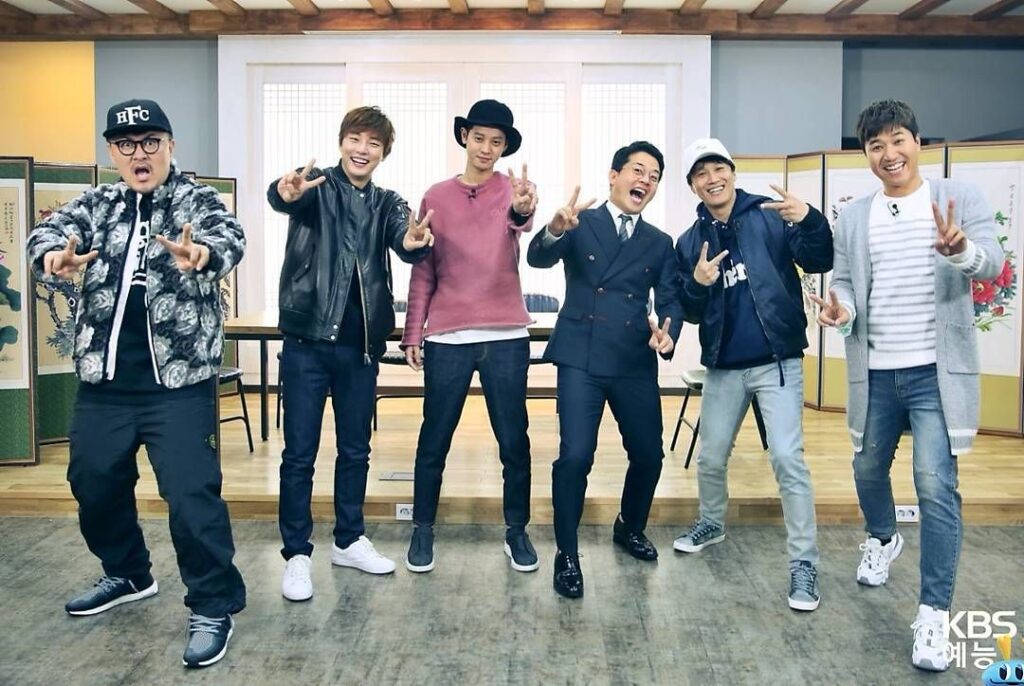
In March of 2019, season 3 of the beloved variety show 2 Days & 1 Night came to an abrupt end following a string of scandals from the cast members. Jung Joonyoung’s involvement in the Burning Sun case as well as an investigation into veteran members Cha Tae-hyun and Kim Jun-ho for illegal gambling meant that half the cast was no longer fit for public broadcast. KBS, the show’s broadcasting company, now faced a challenge as one of their longest running and most reliable programs came to a screeching halt. 2 Days & 1 Night always relied on the chemistry between cast members, and the program was extremely public-friendly. Renowned for its travel and food-centric format, 2 Days & 1 Night consistently brought in viewership with cast members who were household names.
Now, it had no choice but to change.
When Season 4 began airing in December of 2019, it became clear that KBS was rebuilding from the ground up. With an almost entirely new cast and an adjusted format due to the COVID-19 pandemic, the risk paid off as Season 4 effectively conveys a heart and sincerity that resonates with viewers across the world.
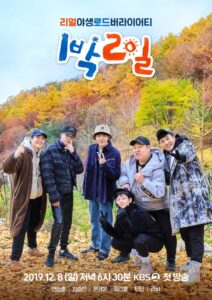
The first challenge the program faced was getting rid of previous scandals associated with its former cast members, so the show replaced all the cast members save for Kim Jong-min, the only member to have remained from Season 1. The new cast consisted of almost entirely variety rookies, including: 1) Yeon Jung-hoon, an acclaimed actor mainly known as “The Nation’s Thief” for marrying Han Ga-in in 2005, 2) Moon Se-yoon, a variety veteran who only rose in prominence after the success of the show Delicious Guys in 2015, 3) DinDin, an easily bullied musician who kicked off his career by appearing on Show Me the Money 2, 4) Kim Seon-ho, a stage actor turned television actor, and finally, 5) Ravi, VIXX member and rapper.
With such an eclectic collection and half the cast new to variety programs, it was hard to see how they would come together.
The revamped season also saw the promotion of Bang Geul-yi as the head director. She is the first female PD in 2 Days & 1 Night history, with previous experience working on The Return of Superman. This caught the attention of many as previous seasons had heavily relied on the trust between the cast and the PD, names such as Na Young-seok (Season 1) and Yoo Il-young (Season 3) becoming as familiar as the names of the main cast members. The stakes of the challenges and games also depended on how much the cast trusted the PD and, as a result, how much the PD could push the cast members.
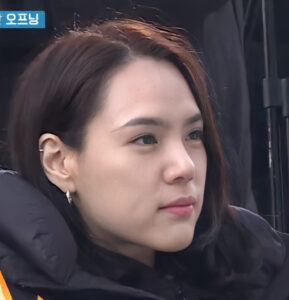
Faced with a cast of rookies, the show’s negative reputation, and COVID-19 which limited the show’s trademark of visiting local attractions, PD Bang faced an uphill climb.
Season 4 faltered in its initial impressions. The first few episodes were awkward and definitely needed adjustment. The cast members, some meeting each other for the first time, often waited for cues rather than take initiative. Though Kim Jong-min could have taken the lead as the show’s veteran, his persona was too guileless to bring the cast together. That meant that Moon Se-yoon, as the next most experienced member, had to step in, but his unfamiliarity with the program meant that he couldn’t be as bold as he wanted. Masks were a frequent appearance, and the number of games they played (which, in previous seasons, often included bystanders) was limited in scale. Already, Season 4 received criticism for lacking the initial 2 Days & 1 Night spirit and, worst of all, for being boring.
As the season progressed, however, these impressions began to change. The show started emphasizing sincerity and wholesomeness as cast members leaned into their collective image of not being good at games. Season 3 was defined by quick-wittedness, sneaky members such as Kim Jun-ho and Defconn catching onto the rules and then manipulating them in their favor. The Season 4 members were different. The show started showing sped-up cuts of the rules being explained over and over again while the members humorously expressed their confusion. By leaning into this, the cast’s obliviousness became a calling card rather than a weakness.
Previous seasons also relied on backstabbing, a staple in Korean variety shows. However, this season chose to place heart at the forefront, with the winning team members often feeding the losers and the losers failing out of sheer incompetence rather than tricky manipulations. This approach worked well with COVID-19 as viewers appreciated the camaraderie and wholeheartedness, using it as an uplifting escape from the difficulties of the real world.
Take, for example, the summer special where the cast came together to cook a meal for DinDin’s mother. DinDin’s relationship with his mother was put on full display, and the result was so touching that the cast members and the directors were moved to tears. While sentimental episodes weren’t foreign to previous seasons, they did take a backseat to laughs and twists in games. Though the summer special’s initial premise of, “filling a day with summer activities” and ending by cooking for a mother might seem boring, it led to a defining moment of 2 Days & 1 Night Season 4.
Eventually, the PD team also hit their directing stride. PD Bang became a character on the show as well. Her trademark bucket hat and medium length haircut gained her the nickname “Nucksal” (for her resemblance to the Korean rapper). She also became known as “Smiley PD,” an ironic nickname for her no-nonsense approach, and her interactions with the cast became a highlight of each episode.
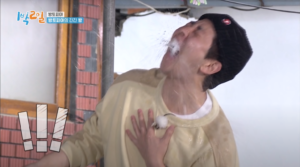
The episodes that best highlight the unique dynamic between the cast and the directing team is when the directors led the cast to a secluded mountain villa and… left them alone. Without supervision. Without live cues, the members were forced to rely on a series of clues that would lead them on a mission. However, the paranoid cast members ended up completing the missions too quickly and out of order, leading to the shocked reactions of the directing team which was monitoring them. The penultimate highlight was meant to be a quiz that would give them the code to unlock the doors to their food, but DinDin ended up guessing the answer by trying every possible combination and eventually unlocking the door. The charm and hilarity of these episodes doesn’t come from the games, but the disbelief of the directing team and the cast members’ initial delight then panic at realizing they’ve effectively failed to secure enough footage, leading to some over-the-top attempts to do “interesting things.”
It’s also worth mentioning that the games have shrunk in scale. Previous seasons of 2 Days & 1 Night involved obstacles, using bystanders, and hunting down items. Now, the featured games are often word or chance games, much easier to replicate at home. This is an especially smart choice since COVID-19 limits how much outdoor activities can be done anyway, and viewers (who are also stuck at home) are more likely to enjoy watching what they can directly replicate.
While the games have changed, the show has also taken a creative approach to collaborations. Take, for instance, the one year anniversary special of Season 4, where the cast collaborated with the alternative pop band LEENALCHI and The Ambiguous Dance Company, the masterminds behind the viral “Feel the Rhythm of Korea” tourism campaign. Here, the cast were given chances to scout out locations, give pitches for why their chosen spot would attract visitors, and to work with LEENALCHI and The Ambiguous Dance Company to create a video. The end result? An endearing and creative video featuring Incheon, featuring the 2 Days & 1 Night members. The video is highly enjoyable even without the context of the show, but knowing the struggles the members faced, remembering their petty conflicts, and their hard work in putting it all together only heightens the video’s entertainment value.
This isn’t the only time 2 Days & 1 Night has cleverly incorporated other mediums. For part of their wish fulfillment series, the members fulfilled Ravi’s wish of performing in front of an audience by holding an impromptu live concert which ended in soaking Ravi with water guns in the dead of winter. By using projects instead of just games, 2 Days & 1 Night has expanded its options even with COVID-19’s limitations.
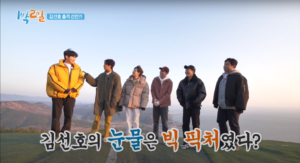
Of course, it would be remiss to judge the show without mentioning each cast member and what they bring to the table. Notably, Kim Seon-ho brough in an unexpected boon with his exploding popularity from the drama Start Up, but the show (cast and editing team alike) have no fear about teasing him nonetheless. Seon-ho also plays it up, sometimes pretending to be above the shenanigans before succumbing and acting as ridiculous as the rest.
The most experienced member, Jong-min, has also stepped up, leading by example. Rather than his wit or leadership, his foolishness but enthusiasm have become a linchpin for the cast members. With no previous variety experience, Jung-hoon is now known as “Passion Jung-hoon” for his enthusiasm in sports and is a figure of wisdom as the eldest and one of the two married men, often giving the younger cast members advice. At some points, he even gives unsolicited advice to the viewers, and the editing team invites us to laugh along with his lofty, “back in my day” attitude.
Se-yoon is a grounding force as he reads the directing team’s faces and acts as the meta, prompting the others to follow the PD team’s direction when they become too scattered. On the other hand, DinDin is an initiator, often enacting plans of betrayal only for them to fail when he himself messes them up. He acts as the “bullied” member, an easy target for the other members to tease, but his pouting is easily remedied by praise after he pulls off an impossible or unexpected win in the games. Ravi is the maknae, and the juxtaposition between his cool hip image, and his obliviousness on the show is charming. As the resident “Instagram star,” he also acts as the cast’s bridge to younger generations.

All in all, 2 Days & 1 Night Season 4 faced huge challenges, but by leaning into what made it different from previous seasons rather than trying to replicate it, it was able to find its own identity. The combination of a naive cast that didn’t try to outsmart the director, who just play the games and have fun, as well as the creative work-arounds to deal with the current climate provide a refreshing makeover for the show. The risks have paid off—at the KBS Entertainment Awards in 2020, it took home five awards (Rookie Award – Kim Seon-ho, Top Excellence in Variety – Moon Se-yoon, Excellence Award, Variety – DinDin, Best Entertainer – Yeon Jung-hoon, Viewers’ Choice Best Program). The latter is perhaps the most important because it showed that viewers connected with the program.
Though it is, in some ways, very different from the pattern that previous seasons had relied on, Season 4 is exactly the type of program that is needed right now. Wholehearted, funny, and reassuring, tuning in every Sunday evening is just like coming home to a table full of beloved comfort foods. Oh, that’s the last thing. Whether it’s the mouthwatering food, the cast dynamics, or the creative missions—while watching, you’ll always be hungry for more.


